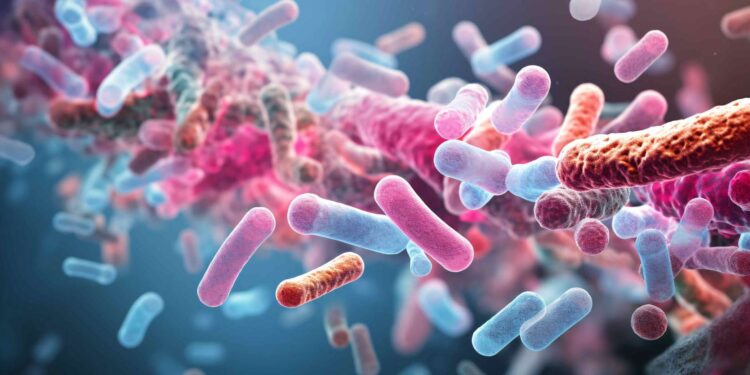Researchers have revealed how probiotic bacteria can reduce weight gain in mice fed a high-fat diet. This study highlights the crucial role of an intestinal protein, FXR, in metabolism. This article first analyzes how probiotics influence this protein and then examines future prospects and clinical implications of this promising research.
This will also interest you
(ON VIDEO) 5 foods that contain probiotics Probiotics are often considered beneficial for health, but there is no need to…
An article recently published in Gut Microbes reports the effect of probiotic bacteria in reducing weight gain in mice fed a high-fat diet. This study reveals interesting mechanisms involving a specific protein in the intestine, which could be a key element in the management of metabolism and preventionprevention of certain diseases.
The effect of probiotics on mice and the discovery of FXR
The research team observed that mice treated with a specific blend of probiotics had fewer metabolic complications related to a high-fat diet. Surprisingly, this improvement was not due to expected changes like intestinal permeability or short-chain fatty acid production.
Digging deeper, they discovered the importance of the FXR protein, a nuclear receptor in intestinal cells. Probiotics reduced FXR activity, which increased the production of bile acids, which are essential for digestion and the regulation of fats in the body. This discovery suggests that the modulationmodulation of FXR could be beneficial for metabolic balance and the prevention of certain diseases.
Future perspectives and clinical implications
The authors’ next goal is to test the effectiveness of these probiotics on humans. At the same time, the team is exploring other bacterial strains influencing FXR. They developed an innovative method to quickly identify these bacteriabacteria, using tests on flies and mice. This approach has already made it possible to discover a new bacterial strain with properties antidiabeticsantidiabetics. A patent was filed in 2023 for this discovery, highlighting its therapeutic potential. This work opens the way to new strategies to fight metabolic diseases, by exploiting the key role of intestinal bacteria and the FXR protein.



